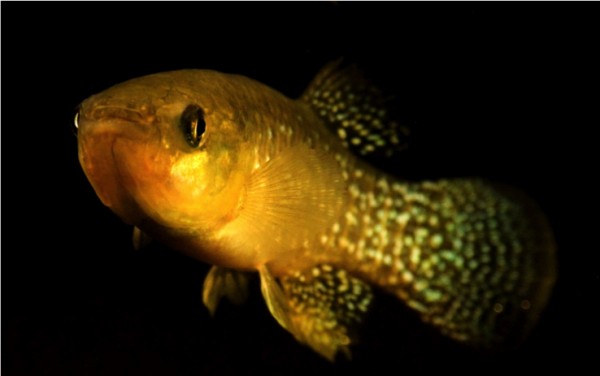By Ana Verayo, | December 12, 2016

Atlantic killifish like this one have adapted to survive highly toxic levels of pollution. (Andrew Whitehead/UC Davis)
Earth's ecosystems and habitats are changing due to man-made activities and unpredictable weather patterns as a result of global warming. However, one fish species is defying all the odds; the Atlantic killifish can survive in the most toxic waters, where other fish species die.
The Atlantic killifish is a unique creature since its extremely diverse genetic makeup allows it to live in dangerously toxic waters. The fish can even survive without water for weeks. There are about 1,200 subspecies of killifish, all of them being quite sturdy and mostly found on the most polluted estuaries along the U.S. East Coast.
Like Us on Facebook
In this new study, a team from the University of California, Davis analyzed the killifish in these estuaries and discovered that they can withstand highly toxic industrial waste and pollutants in bodies of water, as opposed to other fish.
According to the lead author of the study, Andrew Whitehead of the UC Davis Department of Environmental Toxicology, many will think this is a positive adaptation process since the fish species can evolve even if the environment is being destroyed and polluted by man-made activities. However, a majority of other fish species cannot evolve that rapidly since they do not possess special genetic diversity.
Researchers studied the genetic makeup of almost 400 Atlantic killifish and found that this fish possesses genetic diversity that allows it to adapt to toxic habitats.
These new findings are crucial in gaining a better understanding of how genetic differences among vertebrate species from fish, mammals to humans, directly affects our sensitivity to environmental pollutants and chemicals. It can also provide future solutions to dealing with better management within human communities and protecting the ecosystems.
These new findings of how genes play a role in surviving toxic habitats were detailed in the journal Science.
-
Use of Coronavirus Pandemic Drones Raises Privacy Concerns: Drones Spread Fear, Local Officials Say

-
Coronavirus Hampers The Delivery Of Lockheed Martin F-35 Stealth Fighters For 2020

-
Instagram Speeds Up Plans to Add Account Memorialization Feature Due to COVID-19 Deaths

-
NASA: Perseverance Plans to Bring 'Mars Rock' to Earth in 2031

-
600 Dead And 3,000 In The Hospital as Iranians Believed Drinking High-Concentrations of Alcohol Can Cure The Coronavirus

-
600 Dead And 3,000 In The Hospital as Iranians Believed Drinking High-Concentrations of Alcohol Can Cure The Coronavirus

-
COVID-19: Doctors, Nurses Use Virtual Reality to Learn New Skills in Treating Coronavirus Patients







